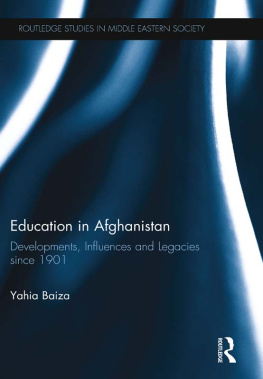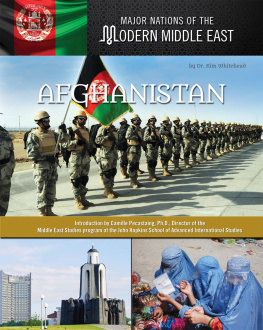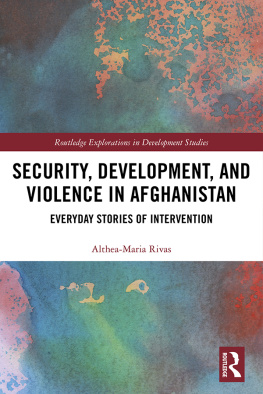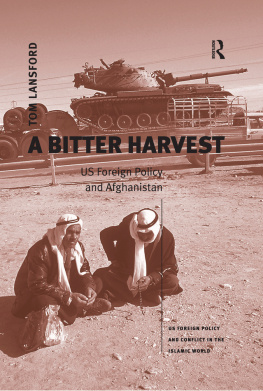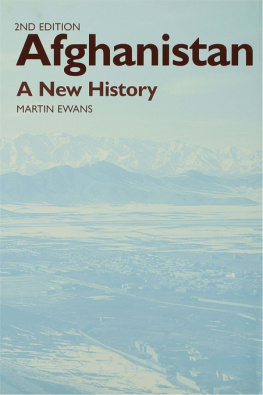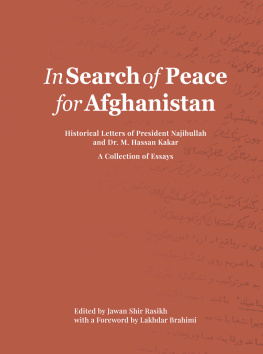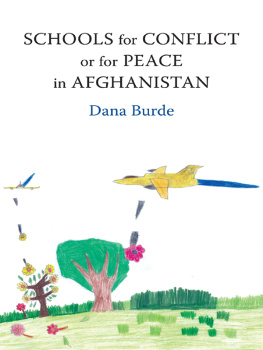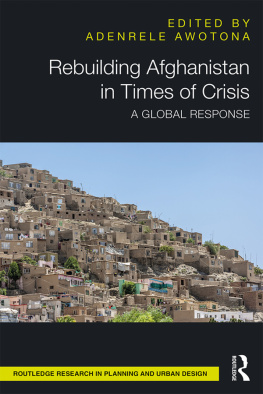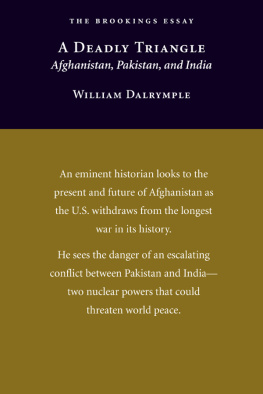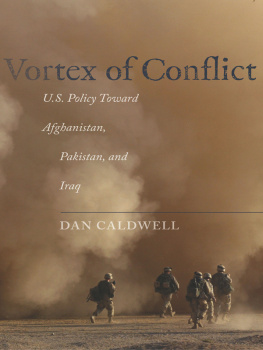Education in Afghanistan
A comprehensive and up to date study of the history of education in Afghanistan since 1901, this book demonstrates how modern education emerged and charts its fluctuating process of development, regression and destruction.
Combining historical and contemporary analysis of key issues, Education in Afghanistan examines religion, modernism, tribal and ethnic conflict, language discrimination, foreign invasions, war, and international assistance through the lens of education. An in-depth understanding of these elements will provide alternative approaches to addressing the on-going conflict in Afghanistan, which has a direct effect on the overall educational development and policy-making decisions in the country.
Offering a new perspective on the conflict in Afghanistan by addressing its impact on education, this book will be an invaluable resource for students and researchers interested in the formation of education policy, social and political reform in the Middle East, and Islamic Studies.
Yahia Baiza is a research associate at The Institute of Ismaili Studies, London, UK. Currently working on a project entitled The Plurality of Shariah interpretations and the Shia Ismailis of Afghanistan, his research interests include education and history in Afghanistan, and the broader field of Shi'a and Ismaili studies.
Education in Afghanistan
Developments, Influences and
Legacies since 1901
Yahia Baiza
First published 2013
by Routledge
2 Park Square, Milton Park, Abingdon, Oxon OX14 4RN
Simultaneously published in the USA and Canada
by Routledge
711 Third Avenue, New York, NY 10017
Routledge is an imprint of the Taylor & Francis Group, an informa business
2013 Yahia Baiza
The right of Yahia Baiza to be identified as author of this work has been asserted by him in accordance with sections 77 and 78 of the Copyright, Designs and Patents Act 1988.
All rights reserved. No part of this book may be reprinted or reproduced or utilised in any form or by any electronic, mechanical, or other means, now known or hereafter invented, including photocopying and recording, or in any information storage or retrieval system, without permission in writing from the publishers.
Trademark notice: Product or corporate names may be trademarks or registered trademarks, and are used only for identification and explanation without intent to infringe.
British Library Cataloguing in Publication Data
A catalogue record for this book is available from the British Library
Library of Congress Cataloging in Publication Data
Baiza, Yahia, 1969
Education in Afghanistan : developments, influences and legacies
since 1901 / Yahia Baiza.
pages cm
Includes bibliographical references and index.
1. Education- -Afghanistan. I. Title.
LA1081.B35 2013
370.9581- -dc23
2012044262
ISBN: 978-0-415-62199-1 (hbk)
ISBN: 978-0-203-39434-2 (ebk)
Typeset in Times New Roman
by Taylor and Francis Books
This book is dedicated to:
the Hujjat of Khurasan Hakim Nasir Khisraw Balkhi (394-481 AH/ 1004-91 CE ), whose writings became my key source of motivation and guidance for pursuing knowledge and nurturing the intellect:
If your tree bears fruit of Knowledge
You shall dominate the blue sky |  |
(Nasir Khisraw's Diwan, 10:15)
and to my parents,
Enayat Baiza and Salima Baiza,
to whom I owe my entire spiritual and physical life.
Contents
List of figures
List of photos
List of tables
The late Professor Mohammed Arkoun was my teacher at The Institute of Ismaili Studies, in London, during the years 1999 and 2000. He was one of the most prominent and influential contemporary figures in Islamic Studies, whose profound intellectual thoughts will continue to influence academic communities for decades to come. I had the pleasure of being one of his students for two years, and enjoyed the company of his scholarly and philosophical thoughts on many other occasions afterwards. He passed away in Paris on 14 September 2010.
Professor Arkoun always expressed a great respect for the people of Afghanistan. Whenever I had a chance to meet him privately, after the class, one of his first questions was: How is the situation in Afghanistan now? Later on, we became good friends and our teacher-student relationship developed into a friendship. I was able to understand his profound intellectual and philosophical thinking, and could engage with him in intellectual conversations. During our conversations, he loved to talk about Afghanistan and its people. He often said that he had a great respect for people there. On several occasions, he told me: Whenever you publish your book on Afghanistan, write and convey my greetings and message for the people of Afghanistan. Professor Arkoun's message was simple and short:
I greet the people of Afghanistan with great love and respect, and I wish them peace, stability, and prosperity.
May God bless and rest his soul in peace.
I am enormously grateful to the many people who have helped and encouraged me in researching, writing and preparing this book in various ways.
This book is based on my doctoral thesis, which I would not have been able to accomplish without the help of my two supervisors. Therefore, I would like to express my most sincere gratitude to Dr Ann Childs, lecturer in education at the Department of Education, Oxford University, and Dr Sayed Askar Mousavi, senior Member of St Antony's College, Oxford University, and former Senior Adviser at Afghanistan's Ministry of Higher Education. I owe them more than I can adequately express for their guidance and support throughout my research study.
I am deeply grateful to The Institute of Ismaili Studies (IIS) for their generous support and the scholarship that they offered me, not only for my doctoral research study, but also for my previous MSc course at the Department of Education, Oxford University, and the two years of study I undertook in Islamic Studies and Humanities at the IIS and the School of Oriental and African Studies (SOAS), London University. Currently, as a research associate at the IIS, I am also grateful for the continuous intellectual and financial support the IIS has been giving to my research projects, which indeed has furthered and deepened my understanding of the subject of this book.
I would also like to thank my wife Khurshid Sana Khan for her intellectual support and fruitful discussions, as well as for the many years of patience as I worked to complete my doctoral thesis, and then this book, while she herself was completing her doctoral thesis.
As this research was conducted and completed over several years, many people too many to name in these acknowledgements contributed to the completion of this work. I would like to thank all my research participants in Afghanistan and all my friends who supported me throughout this study.
I also owe a great deal of gratitude to my sister-in-law, Bilquis, my sister, Maryam, my brother-in-law, Jamil, for the many years of their support, and fruitful intellectual discussions on various issues, which made significant contributions to accomplishing my doctoral studies as well as writing up this book.

